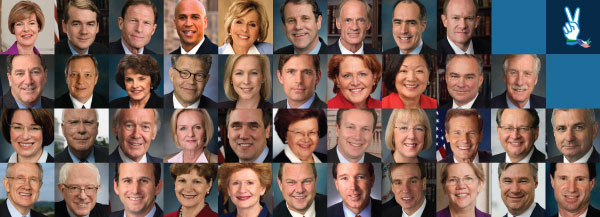
Washington, DC – Representative Mo Brooks (R-AL) wanted to know if the U.S. would consider using nukes against Iran. Representative Dana Rohrabacher (R-CA) suggested U.S. negotiators should have consulted on the talks with the Marxist-Islamist organization MEK, a U.S.-designated foreign terrorist organization until 2012.
But at a House Foreign Affairs Hearing on Tuesday dominated by lawmakers opposed to the deal, it was clear that none of them had a good alternative to the nuclear agreement.
“If congress were to override a veto and disapprove the deal there would be no deal,” said Secretary of State John Kerry of the Iran deal at a hearing on Capitol Hill on Tuesday. “We would see this deal die— die without any other option. No alternative whatsoever.”
Secretary Kerry, together with Secretary of Energy Ernest Moniz and Secretary of the Treasury Jacob Lew testified before the House Foreign Affairs Committee to make the case of the administration in support of the Iran deal.
Members of the committee, including Chairman Ed Royce (R-CA) and Representative Steve Chabot (R-OH), expressed concerns that the Joint Comprehensive Plan of Action (JCPOA) could potentially allow for 24 days before inspectors could access sensitive military sites/installations, leaving time for evidence to be tampered with or removed.
“The 24 days is a new tool, in the sense that there’s never been any limit at all,” Secretary Moniz countered. Secretary Kerry went further to explain that nuclear work could not be hidden, saying, “24 days is an outside period of time during which time and for 24 years or longer – 2400 years – they would not be able to hide the remnants of nuclear material.”
Representative Ros-Lehtinen (R-FL) asked the panelists whether Iran would deny the IAEA access to these sensitive military sites, citing an LA Times article which quoted Iranian Foreign Minister Zarif suggesting otherwise to the Iranian parliament.
“If they don’t provide [access],” responded Kerry, “they will be in material breach of this agreement and the sanctions will snap-back.” This, he countered, would give Iran a strong incentive to allow inspectors into these sites.
Another issue of concern was restricted assets that will be returned to Iran once the deal is implemented, in what some hawks have come to refer to as a 150 billion dollar “signing bonus.”
But Secretary Lew noted that these are Iranian funds to begin with and the actual amount that could be released is closer to $50 billion, a far cry short of the $150 billion originally debated during previous congressional hearings. “There’s 115 billion dollars that is theoretically available,” Lew said, though “In reality, 58-59 billion of that is unavailable, roughly 20 billion is tied up in contracts like China, and the balance is things like non-performing loans.”
Lew added, “It cannot all be used, because they need to keep some foreign reserves just to run their economy.” While Lew did not deny that some money might end up funding Iran-backed regional organizations, he maintained that funding would remain within the same “order of magnitude” as their activities to date.
Ted Deutch (D-FL) worried that the JCPOA would not require Iran to divulge information regarding the possible military dimensions of its past nuclear program as a prerequisite to sanctions relief.
“It is a prerequisite,” corrected Kerry. “If they haven’t complied with the IAEA and lived up to the dates that are laid out in the program, August and October, they will not get relief.”
Back to top